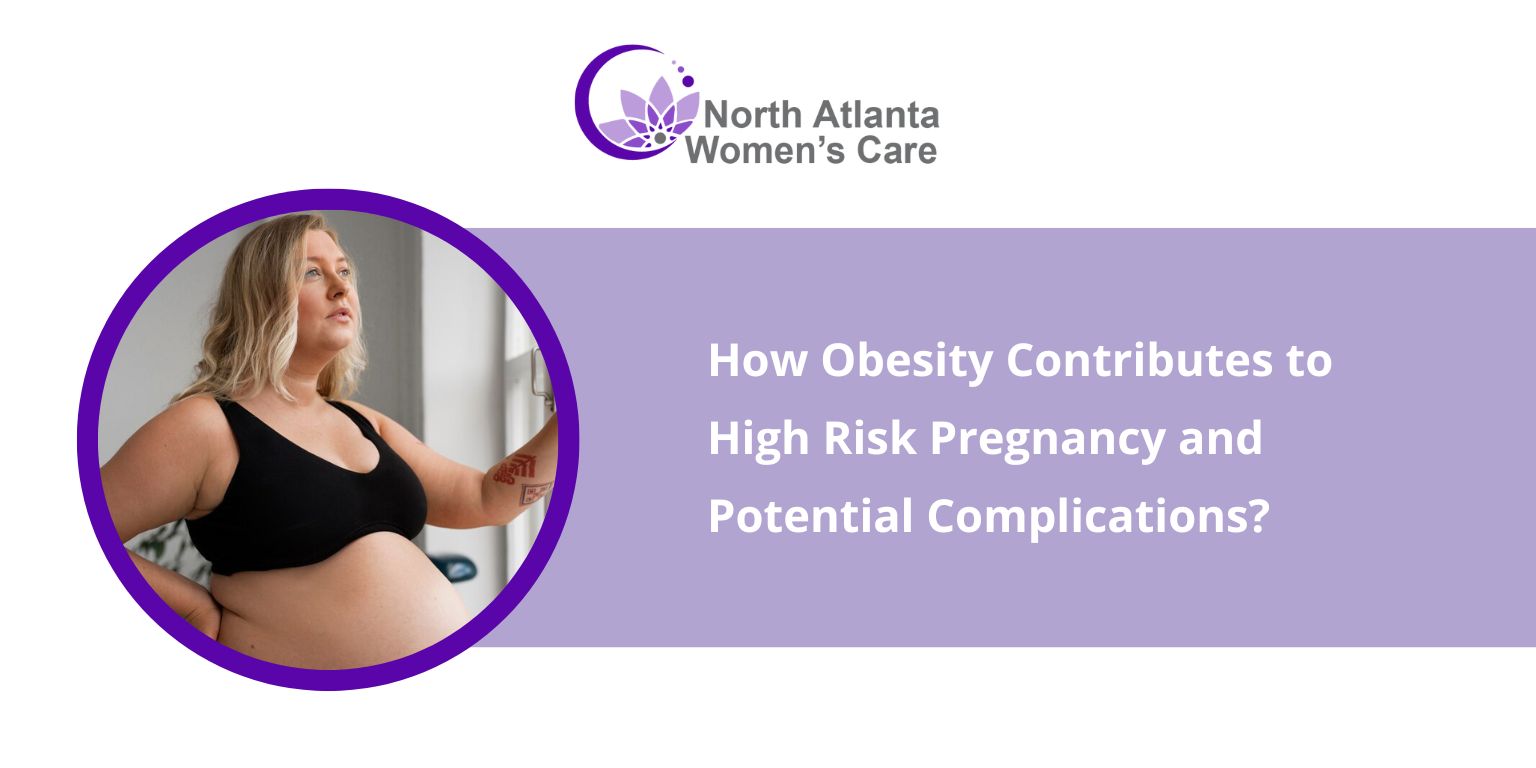How Obesity Contributes to High Risk Pregnancy and Potential Complications?

Obesity has become an increasingly common health concern worldwide, and its effects are especially significant during pregnancy. More women are entering pregnancy with obesity, which raises the risk of complications that can affect both mother and baby. Understanding how obesity contributes to a high risk pregnancy is essential to managing these risks and supporting a healthy pregnancy journey.
Let's discuss what qualifies as obesity during pregnancy, the complications it can cause, the importance of nutrition, healthy habits to adopt, and strategies for managing obesity before and during pregnancy.
What Qualifies as Obesity in Pregnancy?
Obesity during pregnancy is typically defined as having a body mass index (BMI) of 30 or higher, calculated before or in the early stages. A higher BMI is linked to an increased chance of developing health problems such as high blood pressure, diabetes, and heart disease, conditions that can complicate pregnancy.
Maternal obesity is a common concern during pregnancy and is strongly linked to an increased risk of complications. Because of this connection, managing weight is an essential part of prenatal care to support healthier pregnancy outcomes.
Pregnancy Complications Linked to Obesity
Gestational Diabetes
Obesity significantly raises the risk of gestational diabetes, a condition where blood sugar levels become high during pregnancy. This increases the likelihood of having a larger baby, preterm birth, and the development of type 2 diabetes for both mother and child later in life.
Pre-eclampsia
The chance of developing pre-eclampsia, a dangerous condition marked by high blood pressure and potential organ damage, is higher in women with obesity. This condition poses risks to both mother and baby if not carefully monitored.
Miscarriage Risk
Obesity can disrupt hormonal balance and uterine function, increasing the risk of miscarriage, particularly in early pregnancy.
Birth Defects
There is a higher likelihood of congenital disabilities such as neural tube defects and heart abnormalities in babies born to obese mothers, underscoring the importance of nutritional care and medical supervision.
Cesarean Section (C-Section)
Women with obesity have a greater chance of requiring a cesarean delivery due to labor complications. C-sections carry higher risks of infection and a more extended recovery period compared to vaginal births.
Premature Birth
Obesity increases the risk of preterm labor, which can result in complications such as respiratory difficulties and developmental challenges for the newborn.
The Role of Nutrition During Pregnancy in Managing Obesity
Having healthy meals for pregnancy is essential for managing obesity-related risks. A balanced pregnancy diet that provides adequate nutrients supports fetal growth and helps control excessive weight gain. Important nutrients include:
- Folic Acid: Crucial for preventing neural tube defects.
- Iron: Supports increased blood volume and helps prevent anemia.
- Calcium: Necessary for the development of strong bones.
Careful calorie management ensures both mother and baby receive sufficient nourishment without unnecessary weight gain. Staying hydrated and making informed food choices supports overall health during pregnancy. Consulting with healthcare providers or nutritionists can help create personalized meal plans.
Healthy Pregnancy Habits for Obese Women
Regular physical activity helps manage weight and promotes overall wellness during pregnancy. Activities like walking, swimming, or prenatal yoga are generally safe but should be discussed with a healthcare provider.
Consistent prenatal visits enable close monitoring of maternal and fetal health, allowing early detection and management of complications.
Weight gain should be gradual and steady to minimize stress on the body. Rapid changes can increase the risk of complications.
Mental and emotional health are equally important. Stress management techniques and support networks contribute to a healthier pregnancy experience.
Managing Obesity Before and During Pregnancy
Achieving a healthy weight before pregnancy lowers the chance of complications. Practical steps include balanced nutrition, regular exercise, and medical guidance.
Pre-pregnancy care offers an opportunity to address existing health issues and plan a pregnancy that supports the best possible outcomes.
Support from healthcare teams, family, and community resources is invaluable for maintaining motivation and adherence to healthy habits.
Supporting High Risk Pregnancies with Expert Care at North Atlanta Women's Care
Obesity significantly increases the risk of pregnancy complications, often resulting in high risk pregnancies. However, these risks can be effectively managed through balanced nutrition, safe exercise, regular medical care, and emotional support.
Women facing obesity-related challenges during pregnancy are encouraged to seek local support services and professional guidance. Proactive care helps ensure the healthiest possible outcomes for both mother and baby.
At North Atlanta Women's Care, our experienced team is here to guide you through every stage of your pregnancy journey. If you have concerns about obesity-related pregnancy risks, contact us today to schedule a personalized consultation.
Frequently Asked Questions (FAQs)
Can I lose weight safely during pregnancy if I am obese?
Many women wonder if weight loss is safe or advisable during pregnancy. Addressing safe weight management, the risks of active dieting, and medical supervision are crucial.
What types of physical activities are safest during pregnancy for obese women?
Specific exercise suggestions (e.g., water aerobics, walking, prenatal pilates) can support healthier habits and improve confidence.
How can I protect my mental health during a high risk pregnancy?
Obese women may experience more stress, body image concerns, or anxiety. Mental health strategies and resources are valuable to include.
Can I have a natural vaginal birth if I am obese?
It's a common misconception that obesity always leads to a C-section. Clarifying vaginal birth possibilities can be reassuring.
Will my baby need special care after birth if I am obese during pregnancy?
Covering the possibility of NICU admission, blood sugar monitoring, or early screenings helps parents prepare realistically.
Comments are closed

